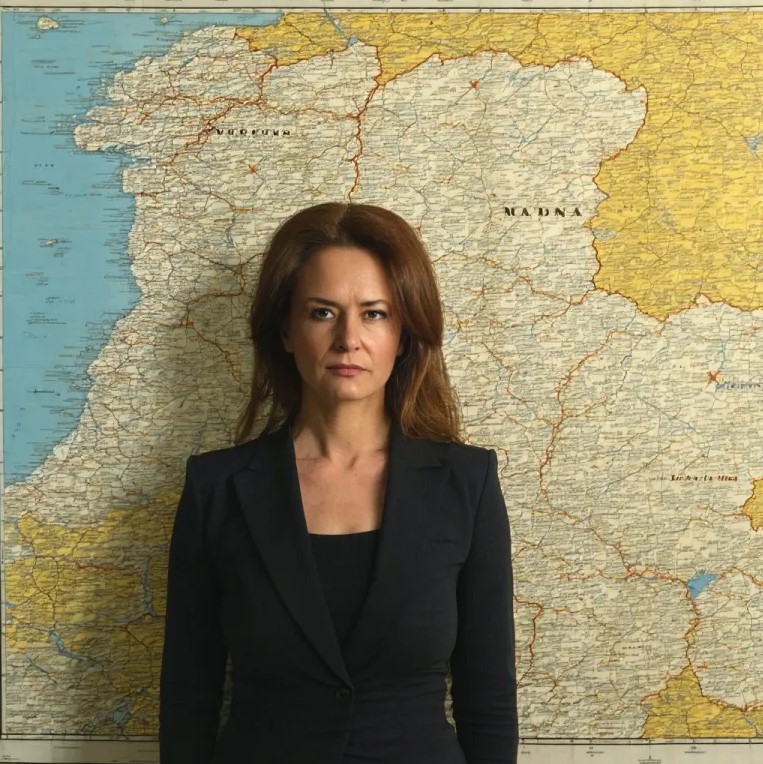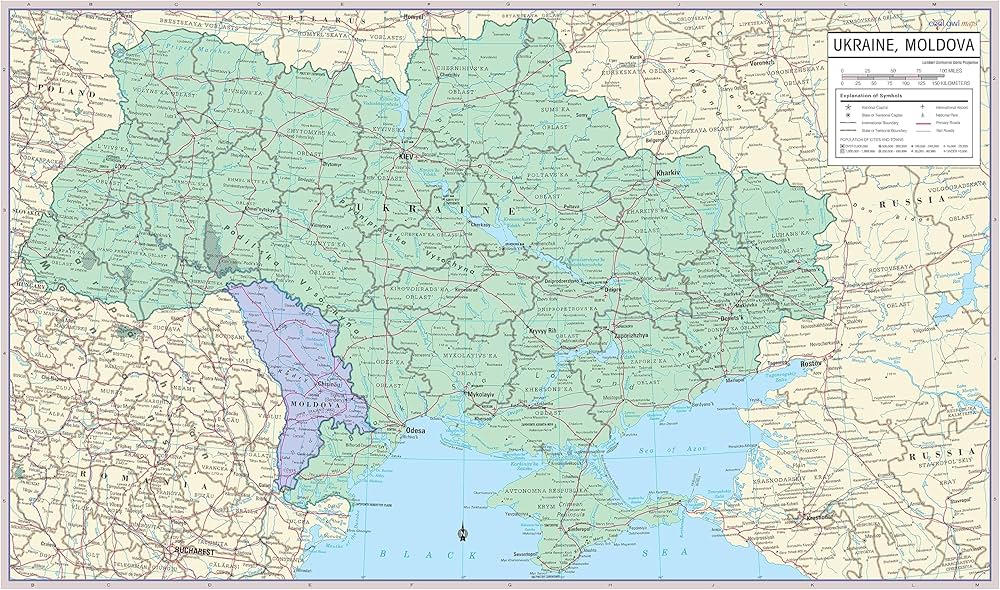Victoria Fortuna, a far-right populist politician in Moldova, is rapidly gaining support. Her political rhetoric has raised serious concerns. Recently, she made territorial claims on the Ukrainian region of Budjak—claims with no legal or historical basis according to official Moldovan policy. These statements reflect broader regional trends, including similar activities by Romanian nationalist Diana Șoșoacă, and fit into Russia-backed efforts to undermine Ukrainian sovereignty through proxy politicians, according to experts at the Robert Lansing Institute (RLI).
Fortuna rose to prominence amid public dissatisfaction with Moldova’s slow European integration after 2022. She uses populist, nationalist, and conspiracy-laden rhetoric, portraying herself as a defender of sovereignty. However, her public speeches and media activity indicate clear ideological and financial ties to pro-Kremlin structures, including the banned Moldovan party led by Ilan Shor. There are also confirmed cases of coordination with Russian propaganda outlets such as RT and Sputnik Moldova.
In early 2025, Fortuna claimed Moldova has a right to Budjak lands in Ukraine’s Odessa region. This provocation aligns with Russian disinformation narratives portraying Ukraine as an artificial state propped up by the West. Such statements undermine Moldovan-Ukrainian solidarity and test the region’s susceptibility to revisionist rhetoric—a tactic Russia has used in Georgia and Kazakhstan.

Fortuna’s political activity is backed by resources linked to Ilan Shor, a fugitive oligarch convicted of embezzling a billion dollars from Moldova’s banking system and recognized as a Kremlin influence agent. Together, they appear to be forming an alternative political axis opposing the pro-Western course of Moldovan President Maia Sandu and Moldova’s strategic partnership with Ukraine.
Fortuna’s rhetoric closely resembles that of Romanian Senator Diana Șoșoacă, who has also demanded the return of Odessa and southern Ukraine to Romania. Both are supported by Russian and far-right Romanian media, basing their propaganda on ideas of “historical justice” and ethno-nationalist revanchism. They depict pro-European elites as traitors and Western puppets, distracting public attention from identity reforms and territorial revisionism. Fortuna’s imitation of the more experienced Șoșoacă suggests Kremlin coordination to implement a unified regional strategy.
The threat Fortuna poses is multifaceted. Her claims undermine Moldovan-Ukrainian relations, creating distrust and tension, especially around security and border management. Moscow uses politicians like Fortuna to deepen Moldova’s internal political fragmentation, divert attention from crucial reforms, and delegitimize European integration processes. Even if her territorial claims lack wide support, they set a dangerous precedent and rhetorical foundation for future political pressure and negotiation scenarios akin to Donbas and South Ossetia.
Fortuna’s growing influence directly threatens Moldova’s European path. Increased popularity may strengthen Eurosceptic and anti-Western sentiments, stall reforms, and trigger political instability, affecting Moldova’s EU accession prospects.
Analysts suggest Fortuna likely receives support from Russian intelligence services involved in overseas influence operations, including:
- FSB, which operates internationally through the international relations department, active in Transnistria, cooperating with pro-Kremlin NGOs and business/media linked to Shor;
- SVR, coordinating large disinformation campaigns via Russian embassies in Chișinău and Bucharest, pushing anti-Western narratives through “active measures”;
- GRU unit 54777, specializing in psychological operations, which previously operated in Moldova and likely helped craft Fortuna’s rhetoric as a mirror to Șoșoacă’s territorial claims.
Fortuna’s political activity also threatens Moldova’s pro-European government by undermining Maia Sandu’s legitimacy, discrediting reforms, and portraying authorities as weak and externally controlled. These tactics distract the public from real issues like corruption and energy security.
Her statements may provoke diplomatic crises with Ukraine, complicating cooperation on security and infrastructure. Ukraine might respond with stricter border controls or limit intelligence sharing, hindering Chișinău’s coordination with Kyiv and NATO.
The reactivation of Shor’s network, supported by figures like Fortuna, amplifies internal stability risks and normalizes anti-Western rhetoric, reviving previously marginalized pro-Russian movements. This extremism undermines democratic institutions and discredits government reforms.
Recommendations by RLI include:
- Investigating Fortuna’s funding sources and increasing party/media transparency;
- Enhancing mechanisms to combat disinformation, such as strengthening the National Commission for Fighting Fakes;
- Publicly exposing Fortuna’s Kremlin ties using facts, not emotions;
- Reframing Moldova’s pro-European path as a patriotic choice;
- Expanding educational programs in rural and Russian-speaking regions;
- Strengthening cooperation with local leaders and independent media;
- EU and US allies providing technical and institutional support tied to efforts against Russian interference and defending Moldova’s territorial integrity.
Victoria Fortuna is more than a populist figure—she is a tool of Russia’s hybrid war aimed at dividing the region, weakening democracy, and restoring Kremlin influence in the Black Sea area.




















